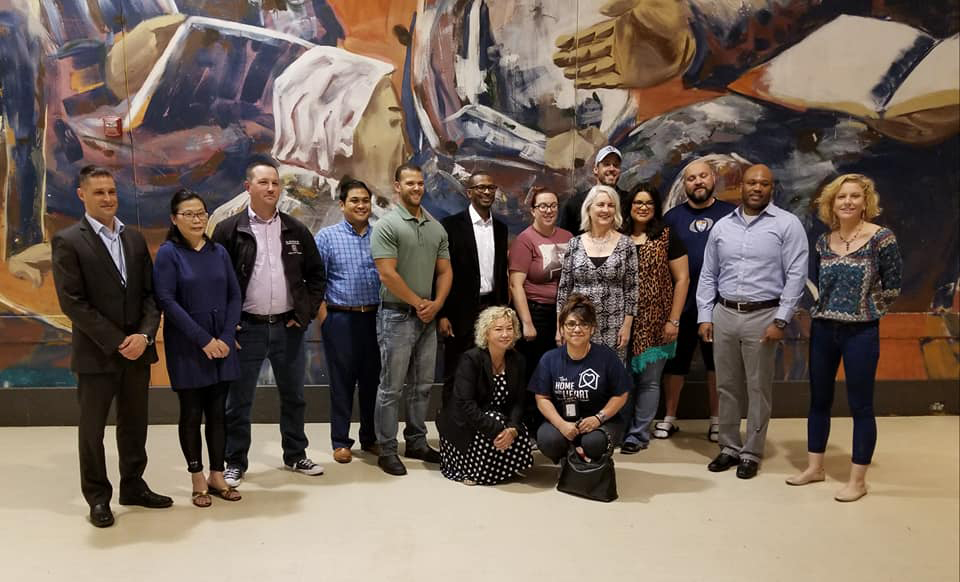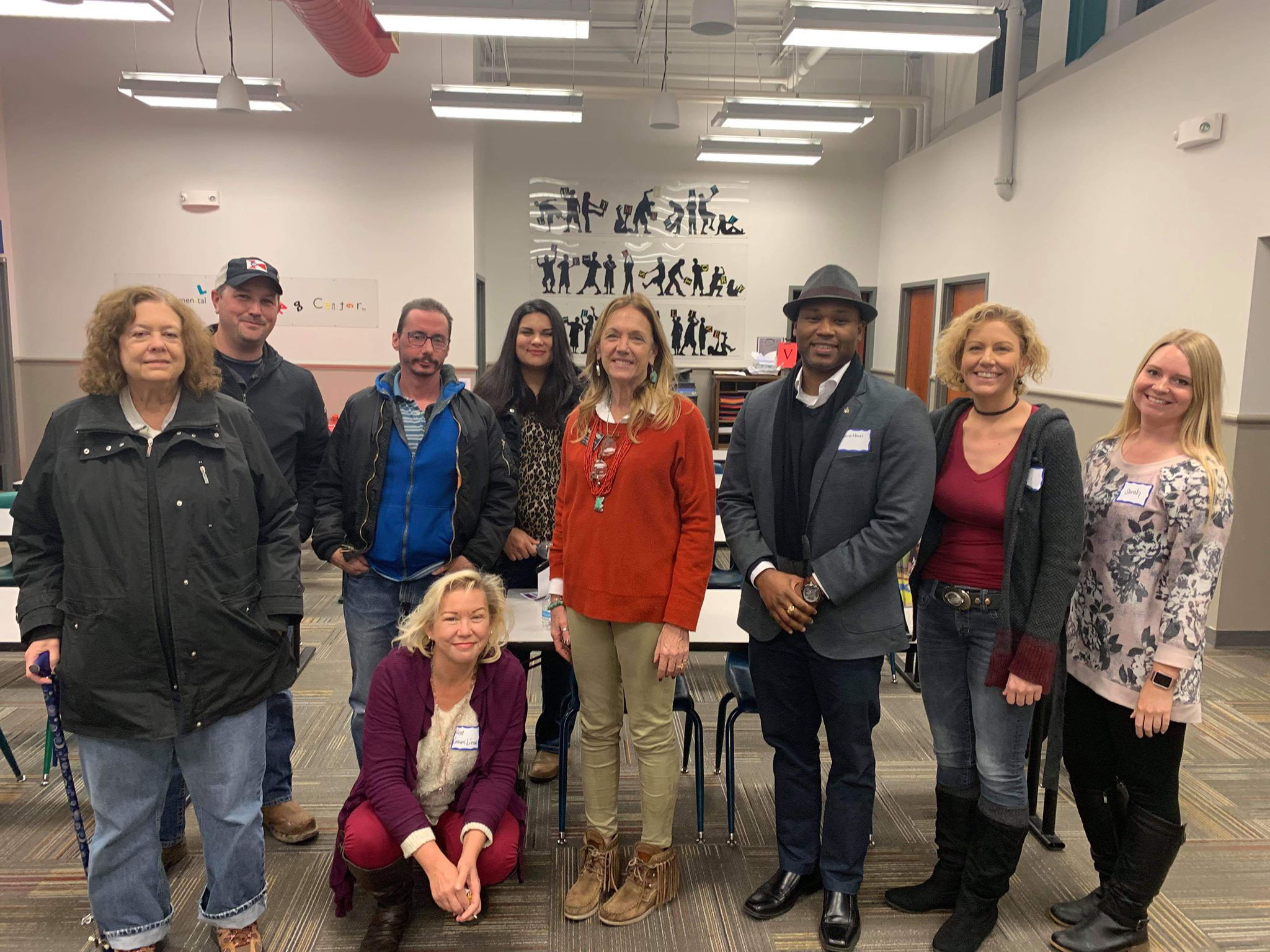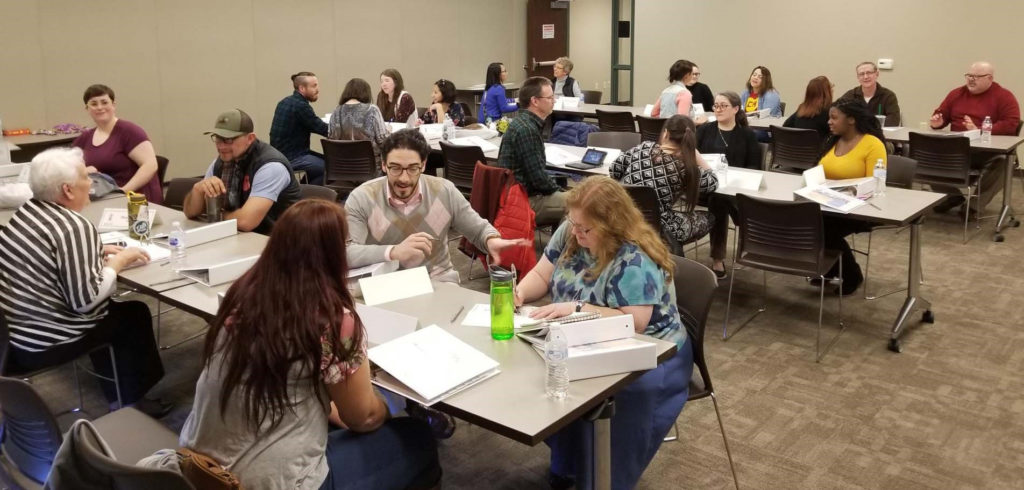
By Rebecca Trout
Editor’s note: This article was compiled with assistance from City of Wichita District VI Council Member Cindy Claycomb. Additional sourcing from the City of Wichita’s Kansas Health Foundation grant application and League of Kansas Municipalities Innovation Award application.
Like many cities, Wichita, Kansas, had a Citizens’ Academy, designed to teach residents about the inner workings of their city government. Like others, the academy had lofty intentions of creating resident leaders who would become engaged in advisory boards and community-driven projects. Unfortunately, city leaders began to realize that while the program provided in-depth information about city departments and services, its graduates didn’t necessarily become more civically engaged. The program also proved to be labor intensive, requiring an enormous time commitment by already-taxed city department directors.
In 2018, Wichita created a Civic Engagement Academy that is less taxing to city departments, more interactive for participants, and has resulted in more engaged community leaders. To realize its vision for a more effective program, Wichita took the unusual first step of applying for a grant from the Kansas Health Foundation. While health and civic engagement may not be linked in the minds of most people, the Kansas Health Foundation realized the connection between poorer health outcomes and lack of engagement.
In fact, the 2016 Kansas Civic Health Index found that “Kansas groups that are the least politically engaged also experience the poorest health outcomes.” This finding allowed The City of Wichita to make the case in its grant application that if underrepresented populations suffering from poor health outcomes were to become more engaged in their local government processes, they would be better able to participate and advocate for themselves in the future.
In addition to the emphasis on health, another key factor in making the proposed new academy more effective was the focus on recruiting a more diverse pool of participants. In its grant proposal to the health foundation, the city stated that recruitment efforts would “concentrate on finding those who have not previously ‘been at the table’ of civic engagement.”
In pursuit of this goal the city proposed putting the new academy in the Evergreen Neighborhood Resource Center (ENRC), which is in the heart of the historical “North End” area of Wichita and serves a largely Hispanic neighborhood. By using the established ENRC—already frequented by people of all ethnicities and nationalities—the city hoped to attract a more diverse network of participants who are typically underrepresented in the democratic process.
Additional attention was given to making the new academy more interactive and experiential than the original. The city made the case in its application that the grant would enable the development of a comprehensive Civic Engagement Academy to teach individuals how and why to become civically engaged, provide hands-on experience with specific engagement actions, and inspire them to vote regularly. Specifically, it was proposed that the Civic Engagement Academy would emphasize “participants learning how to engage with each department for the purposes of 1) seeking information, 2) reporting problems, and 3) submitting suggestions. Additionally, residents will learn what opportunities exist within each department to serve on a related advisory board or commission if that is an option.”
The Kansas Health Foundation determined that increasing the civic health of Kansans was of significant importance and the City of Wichita was awarded a $25,000 grant to develop a new Civic Engagement Academy. One of the primary reasons for the grant award was KHF’s belief that engaged residents lead to stronger communities and improved health outcomes. KHF specifically states that:
Regular voting habits in local elections are directly correlated to an individual’s health. This determination is attributable to the fact that those who do not regularly vote in their local elections are not likely to vote for elected officials who would create policies that lead to their best health outcomes. Increasing the understanding of how to participate in the civic process for individuals who hold either an ethnic, racial or socio-demographic minority status leads to those individuals being better prepared to vote for their own best health outcomes. This type of education also increases the capabilities of persons in minority categories to collaborate with local government in order to make progress on civic matters they are passionate about.
With the help of the grant, a new Civic Engagement Academy was developed and held its inaugural class in February of 2018.
Program objectives are to:
- Invite, inspire, and empower individuals to engage with their municipal government;
- Teach individuals how and why to become civically engaged;
- Provide hands on experience with specific civic engagement activities; and
- Inspire regular voting habits.
The curriculum was developed in collaboration with the Kansas Leadership Center, a non-profit organization that focuses on developing Kansans into leaders in their communities. (The National Civic Review article, Scaling up Civic Leadership: Combining Individual-Level Change and Culture Change by Doug Easterling, has additional information about KHF’s historical focus on civic engagement and the Kansas Leadership Center’s work.) The curriculum focuses on both informing citizens about the composition and operations of local government departments and helping them develop skills to engage in work with local government officials and their fellow citizens. The program now features classroom instruction, field trips, simulations, group work, case study discussions, and community engagement exercises.

So far, the Civic Engagement Academy has hosted four classes, each consisting of eight, three-hour sessions attended by 25-30 participants. 64 percent of participants were female, 60 percent live in older, less-affluent neighborhoods, and 29 percent self-identified as a minority. All sessions are facilitated by Community Services staff, reducing the burden on directors of city departments. The sessions cover the following topics and exercises:
- Session 1- Participants go over the program expectations and structure and are given an overview of the city council and budget. Participants also participate in an exercise aimed at explaining what the city does versus what the county does.
- “Try It” Exercise: Explore the city website and/or sign-up for the newsletter.
- Session 2- Participants are given a tour of the city’s website and an overview of economic development.
- “Try It” Exercise: Apply for a public library card and/or explore an unknown park or library.
- Session 3- Participants are given an overview of the advanced learning library, housing, and community services and transit operations.
- “Try It” Exercise: Ride a public transit bus and/or identify a housing or community service provider to learn more about.
- Session 4- The city council attends and takes part in a panel discussion. Participants are also given a public works overview. Participants are taken through Access Wichita, a new knowledge base and city complaint reporting system. Participants also take part in a capital improvement plan decision-making exercise.
- “Try It” Exercise: Report something in your neighborhood using Access Wichita.
- Session 5- Participants are given a planning and zoning department overview and take part in a planning activity simulation. Participants are given three pages of ideas on ways to be civically engaged.
- “Try It” Exercise: Attend an advisory board meeting or watch online. Alternatively, educate someone on Access Wichita.
- Session 6- Participants are given a tour of the law enforcement training center and an overview of the police and fire departments.
- “Try It” Exercise: Identify your community police officer and ask him/her how you can help deter crime in your neighborhood, email the fire department, or explore the Nextdoor app.
- Session 7- Participants are given a tour of city council chambers and council offices. An overview of the importance of the 2020 census is also given. Civic Engagement Academy alumni sit on a panel and interact with current students.
- “Try It” Exercise: Do any of the ‘try it’ exercises that you might’ve missed.
- Session 8- A graduation ceremony is held, and graduates tell stories about the impact of the academy on their lives. A discussion about the vision for the future of Wichita is also facilitated.

Feedback from participants has been positive, as this Civic Engagement Alumni Video documents.
Lessons Learned and Outcomes
- The “try it” at-home exercises are important and are based on a behavioral change model that suggests that people must try a behavior multiple times to make it habit.
- The cohorts are important and act as a support system.
- Continued alumni engagement is essential, and graduates have created an alumni association to invite speakers to enhance their knowledge and experience.
- With limited data, there has already been an increased interest in boards, commissions, and community service projects by alumni grads.
The City of Wichita has successfully transformed its Citizens’ Academy into a more interactive and results-oriented Civic Engagement Academy. The new academy has reduced city staff time, engaged traditionally excluded segments of the population, and has created more engaged residents, as evidenced by alumni from the academy applying and being selected for boards, community task forces, and steering committees. Only time and dedicated study will tell if the original hypothesis is true and increased civic engagement will lead to better health outcomes. Until then, the community is pleased with the results thus far and is excited to see what the future holds.
Rebecca Trout is Program Director for the All-America City Awards and Communications at the National Civic League.



